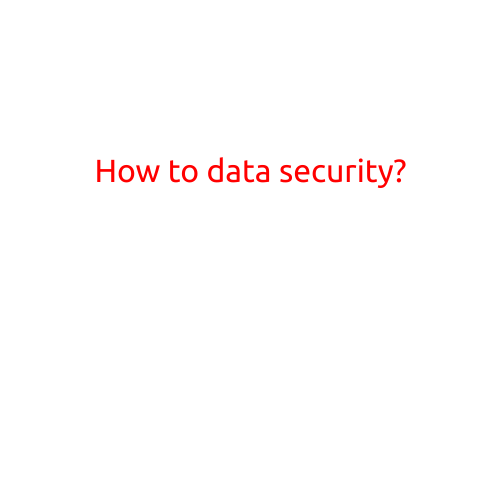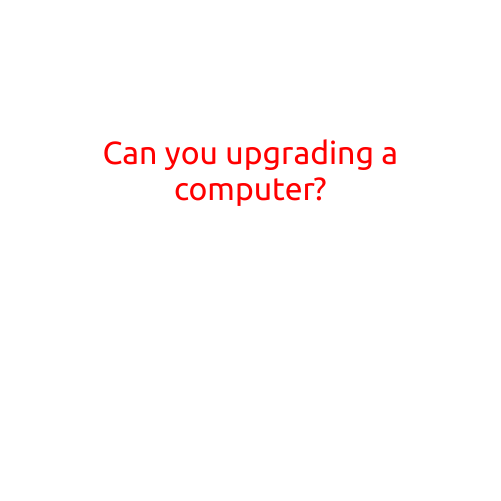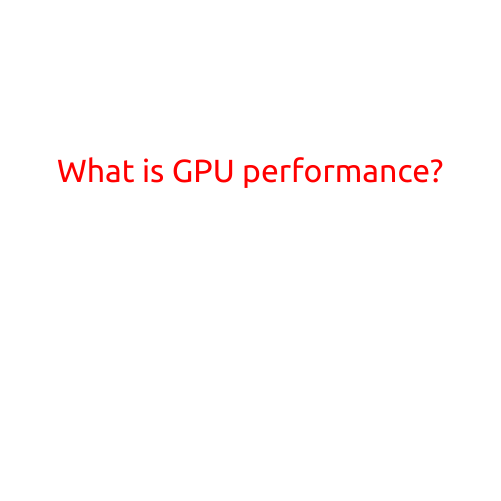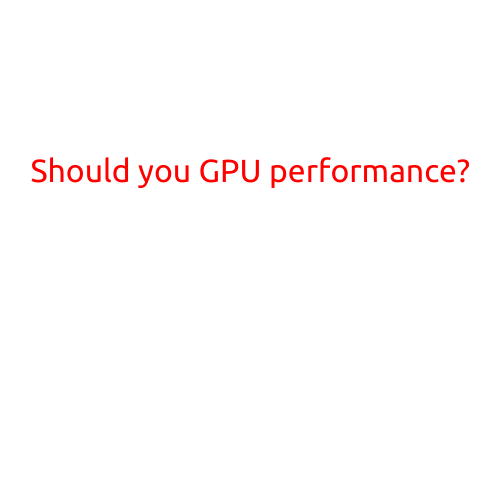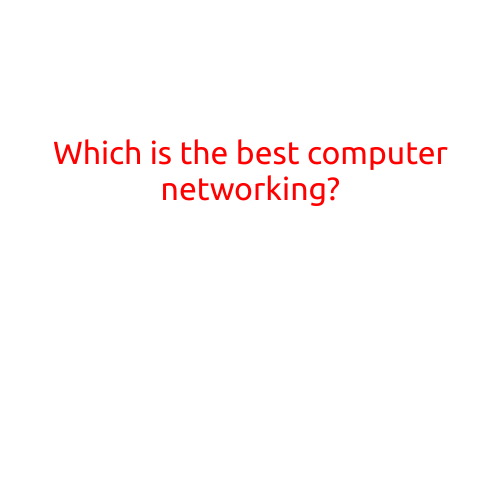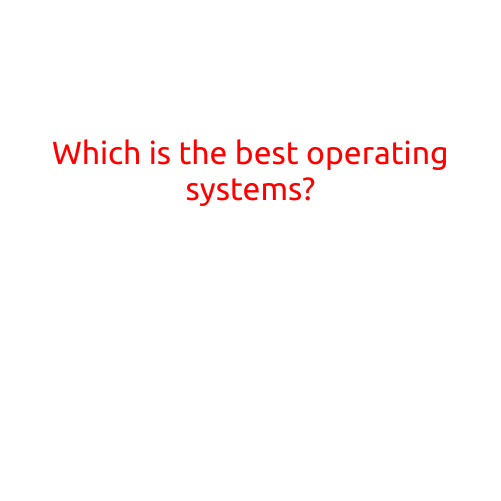
Which is the Best Operating System?
With the ever-growing use of technology, choosing the right operating system (OS) has become a crucial decision for individuals and organizations alike. With numerous options available, it can be overwhelming to decide which OS best suits your needs. In this article, we’ll explore the most popular operating systems, their features, and their advantages to help you make an informed decision.
Top Contenders:
- Windows:
- Developed by Microsoft, Windows is one of the most widely used operating systems, with a market share of over 87%.
- Its user-friendly interface and vast software library make it popular among desktop and laptop users.
- Supports both 32-bit and 64-bit architectures.
- MacOS:
- Developed by Apple, MacOS is the operating system for Mac computers and is known for its sleek design and user-friendly interface.
- Exclusive to Apple devices, MacOS is a great choice for those invested in the Apple ecosystem.
- Optimized for high-performance hardware, MacOS is perfect for creative professionals and gamers.
- Linux:
- Developed by Linus Torvalds, Linux is an open-source operating system used by millions of users worldwide.
- Highly customizable, Linux offers a wide range of distributions (distros) to suit different needs and preferences.
- Excellent for developers, hobbyists, and power users who want control over their system.
Features to Consider:
- Security: Consider OSes with robust security features, such as firewalls, antivirus software, and regular updates.
- Compatibility: Think about the software and hardware you need to work with. Ensure your chosen OS is compatible with your devices.
- Customization: Do you prefer a customizable interface or a streamlined experience? Linux offers extensive customization options, while Windows and MacOS offer varying degrees of customization.
- Cost: If budget is a concern, consider free and open-source options like Linux or Chrome OS.
- Performance: If you require high-performance capabilities, MacOS and Windows offer optimized hardware support.
Comparison:
| Feature | Windows | MacOS | Linux |
|---|---|---|---|
| Security | Robust security features, including Windows Defender | Built-in Firewall, Gatekeeper | Firewall, Antivirus software |
| Compatibility | Wide range of hardware and software compatibility | Optimized for Apple devices and software | Highly customizable, requires manual setup for non-Linux software |
| Customization | Modest customization options | Streamlined interface, limited customization options | Extensive customization options |
| Cost | Free trial, subscription-based | Requires Apple device and software purchases | Free and open-source, with optional distros |
| Performance | Optimized for modern hardware | Optimized for high-performance hardware | Highly customizable, can be optimized for performance |
Conclusion:
Choosing the best operating system ultimately depends on your specific needs and preferences. Windows, MacOS, and Linux all have their strengths and weaknesses. Consider your requirements for security, compatibility, customization, cost, and performance before making your decision.
Recommendation:
- Windows: An excellent choice for general users, businesses, and gamers who require a wide range of software and hardware compatibility.
- MacOS: A solid option for creative professionals, designers, and developers who value a seamless user experience and high-performance hardware.
- Linux: Perfect for power users, developers, and hobbyists who want control over their system and don’t mind a steeper learning curve.
By considering these factors and choosing the right OS, you’ll be well on your way to a smooth, efficient, and enjoyable computing experience.
